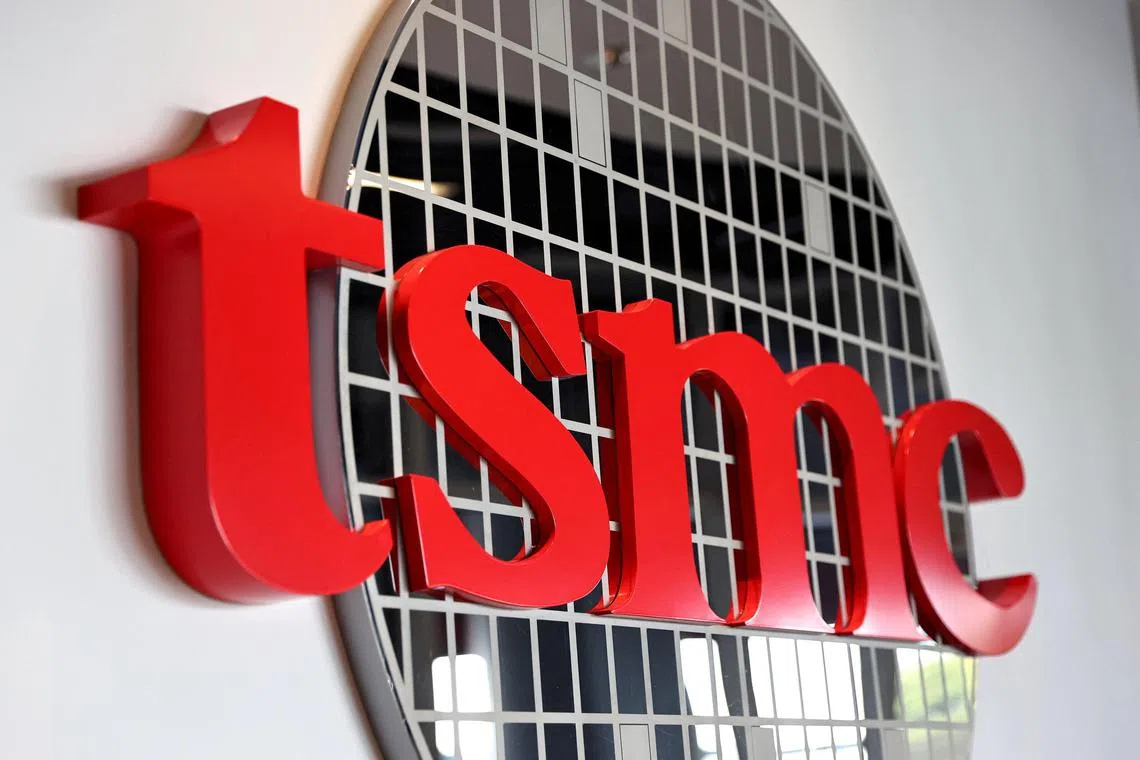Taiwan chip giant TSMC sued for allegedly favouring Asian staff
Sign up now: Get ST's newsletters delivered to your inbox

The lawsuit against TSMC alleges that it unfairly favours those who hail from Taiwan or China in terms of hiring, firing and working standards.
PHOTO: REUTERS
washington – More than a dozen US-based employees of chipmaking giant Taiwan Semiconductor Manufacturing Company (TSMC) have sued the company for alleged discrimination against non-Asian workers, according to a lawsuit filed recently.
The suit alleges that the world’s largest contract manufacturer of chips – used in everything from Apple iPhones to Nvidia’s artificial intelligence (AI) hardware – unfairly favours Asian staff in terms of hiring, firing and working standards.
Initially filed in August, the suit was refiled last week as a class-action case with 13 plaintiffs named.
It alleges that TSMC routinely subjects those who do not hail from Taiwan or China to a “hostile work environment where verbal abuse, gaslighting, isolation and humiliation are common, and oftentimes lead to the constructive discharge of these employees”.
The 13 plaintiffs – whose backgrounds include the United States, Mexico, Nigeria, Europe and South Korea – are seeking damages to redress TSMC’s apparent discrimination practices.
The lawsuit was first filed in August by TSMC recruitment manager Deborah Howington, alleging bias towards Asians, and particularly Taiwanese employees, in decisions on hiring and termination of employment.
It claims that non-Asian workers are “frequently excluded from business discussions, as conversations are often conducted in Mandarin and business documents are routinely written in Chinese”.
TSMC declined to comment on the litigation but said in a statement on Nov 14 that “we hire and promote without regard to gender, religion, race, nationality or political affiliation because we respect differences, and believe that equal employment opportunities strengthen our competitiveness”.
The company is at the forefront of a generative AI revolution, churning out the world’s most advanced microchips needed to power products made by Silicon Valley.
It has secured billions of dollars in US funding and has agreed to operate three factories in Arizona. AFP


